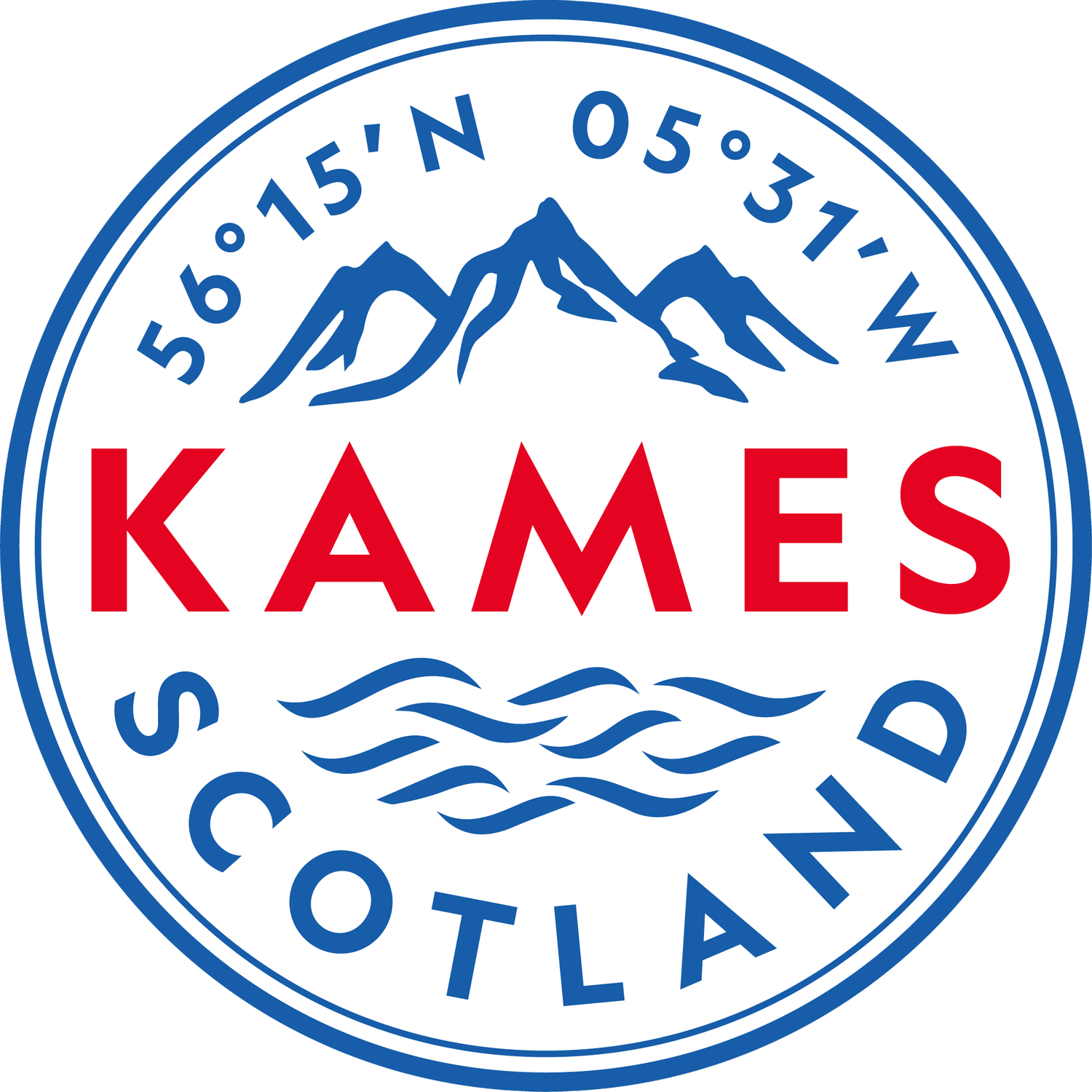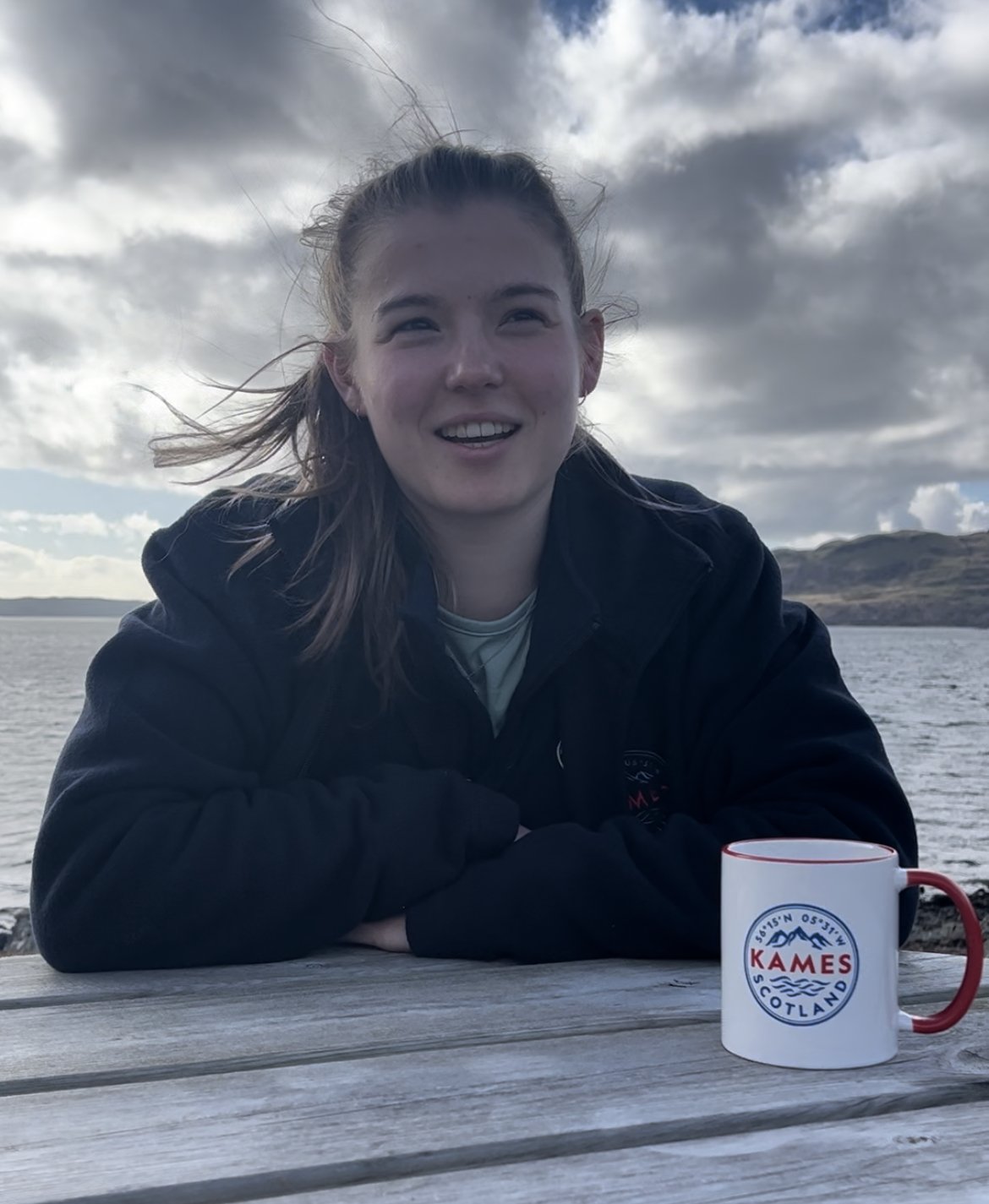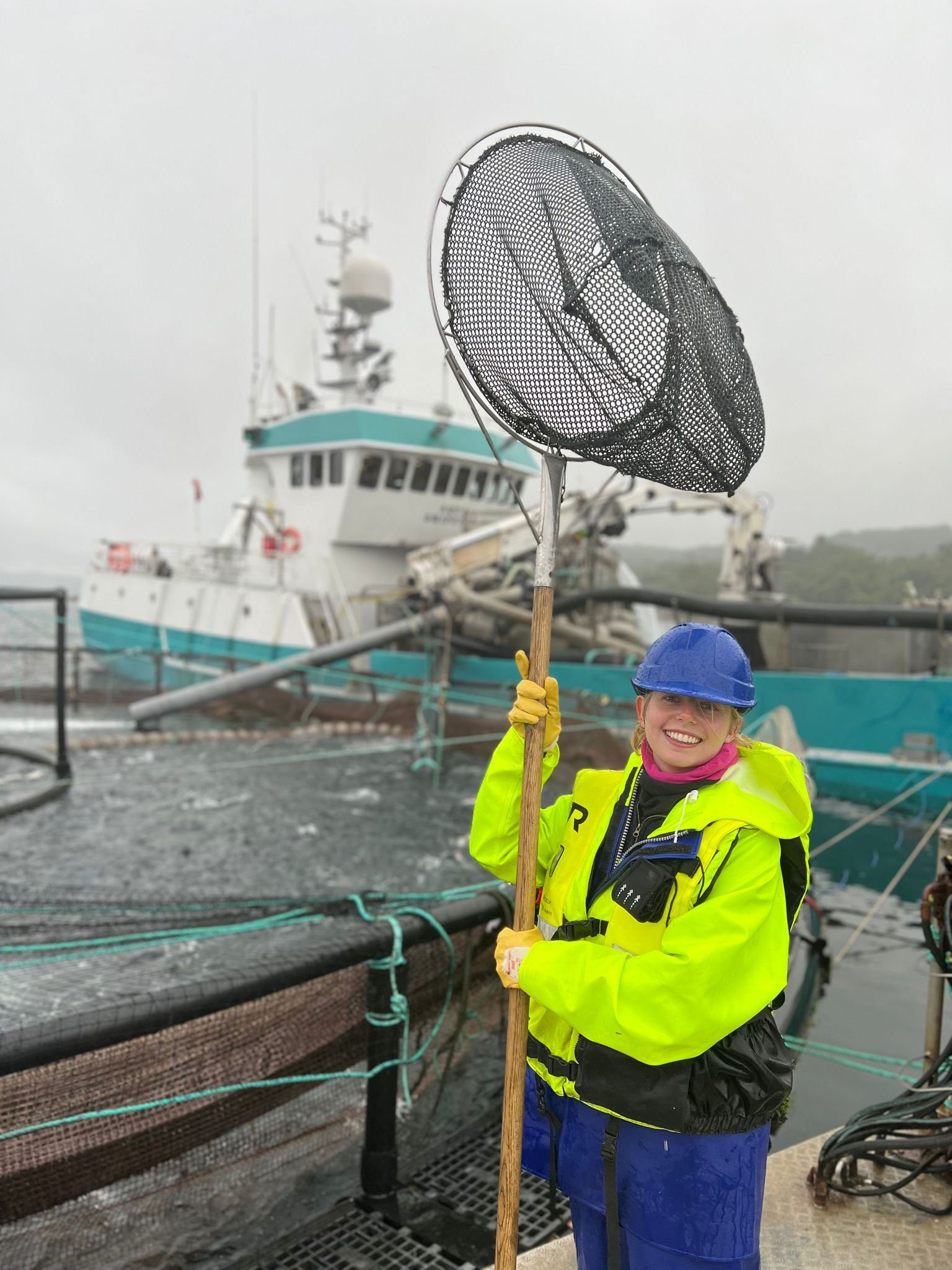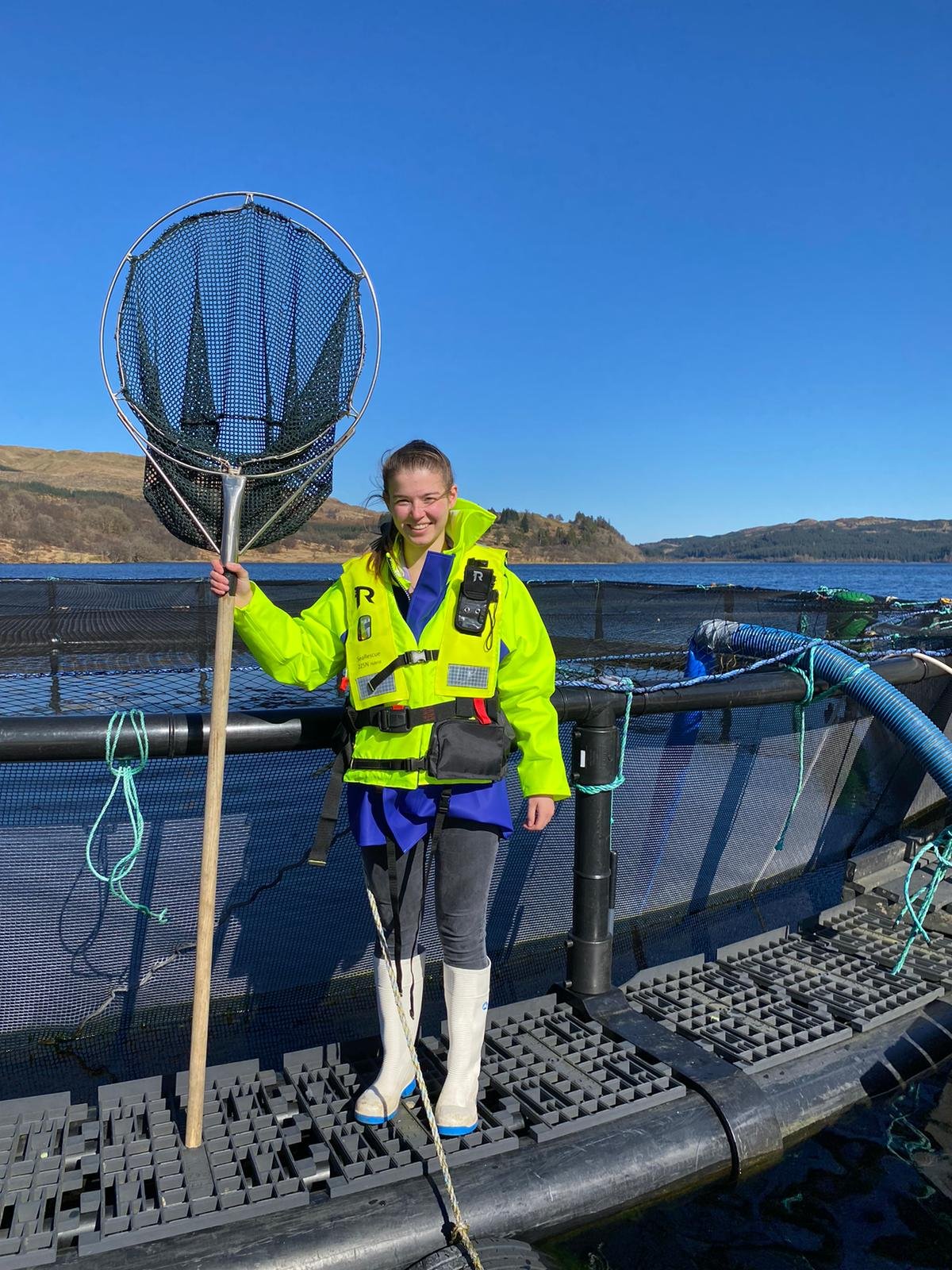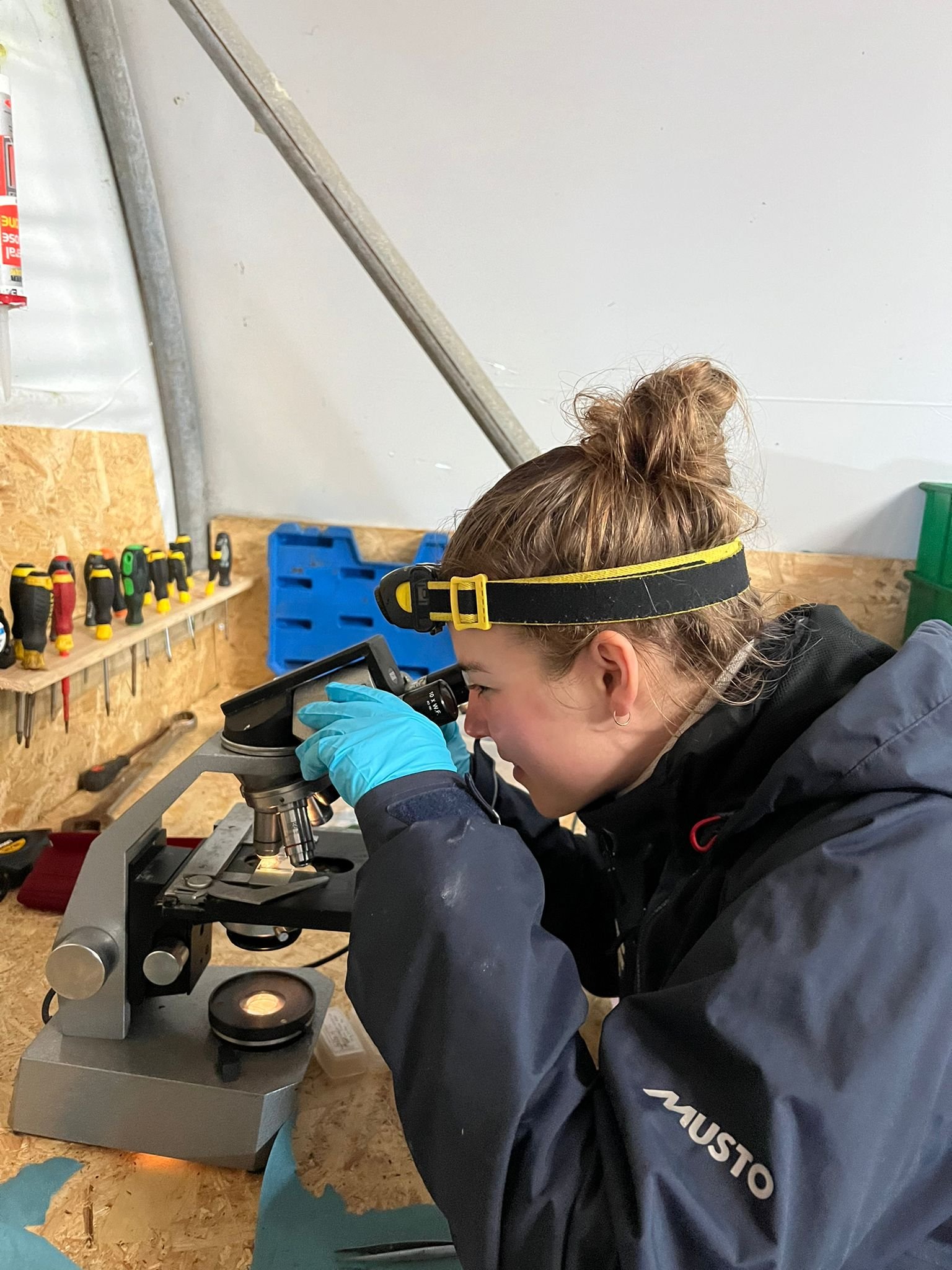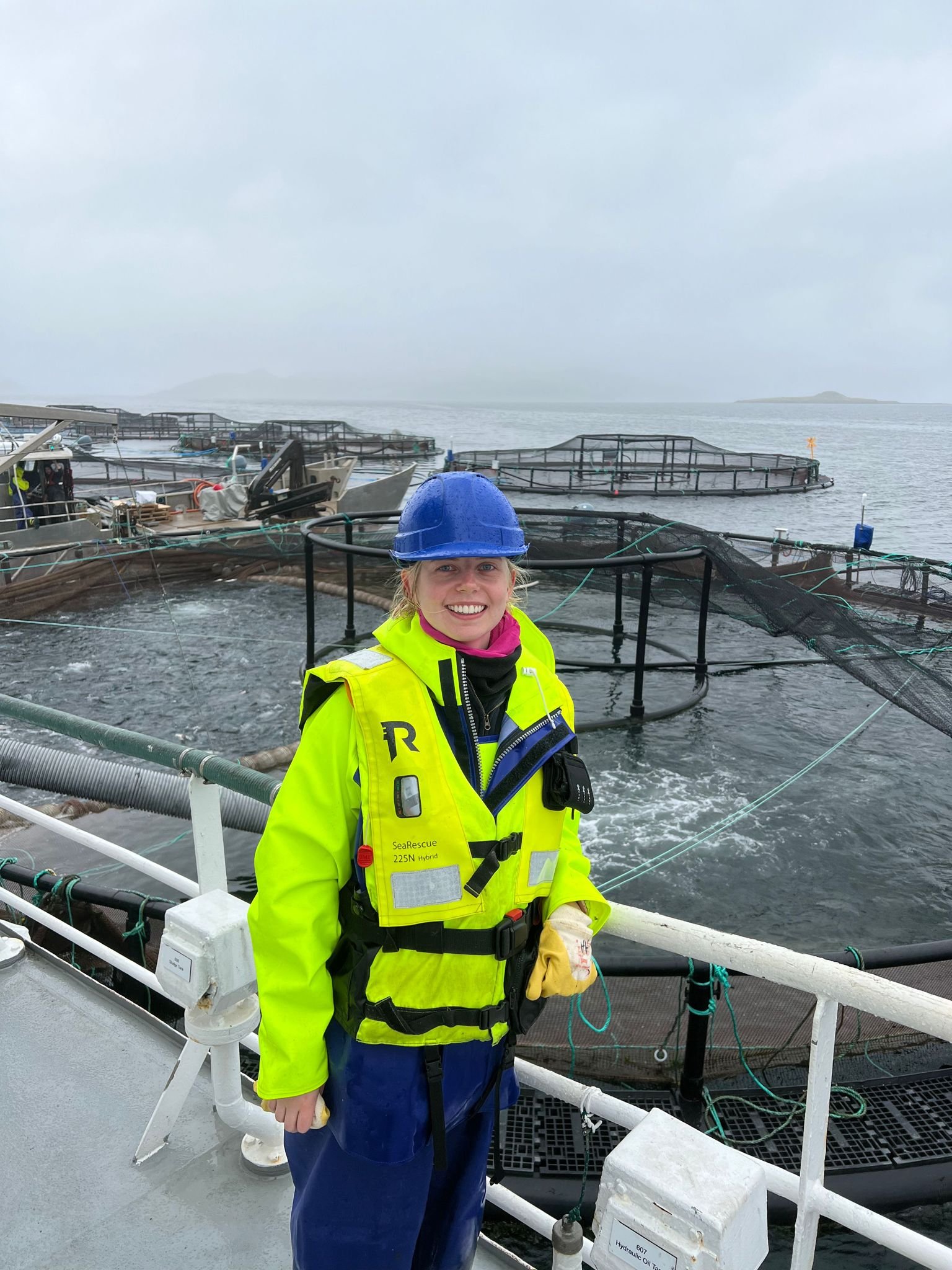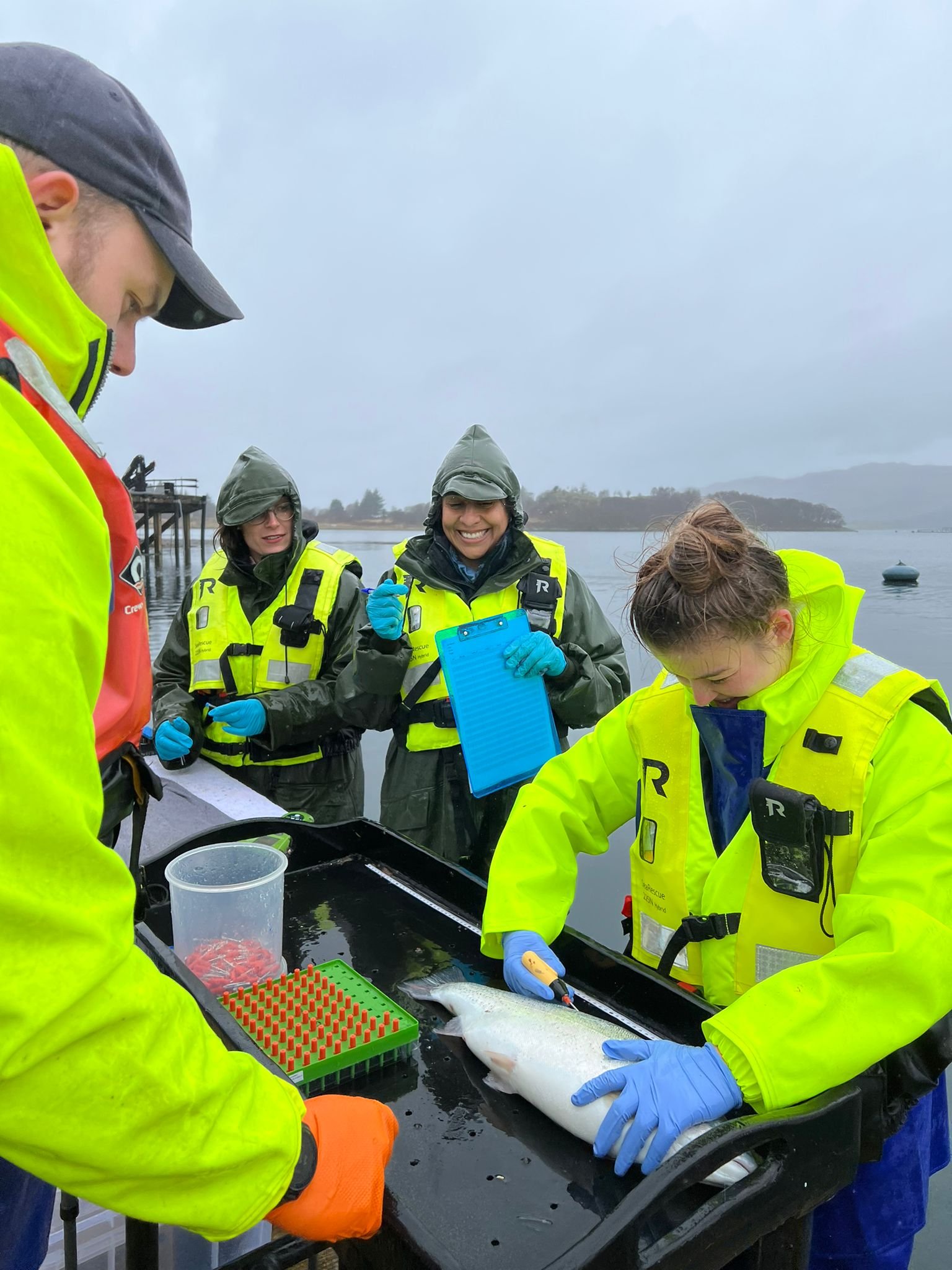Vet student placements at Kames
Courtney and Amelia are both studying Veterinary Medicine at The Harper and Keele Veterinary School and came to Kames for a fortnight placement in April and June respectively. We asked them what they thought of the experience.
So - what have you learnt in the last fortnight?!
Courtney: I’ve managed to get a whole range of experiences. On one of the first days, I was pit-tagging the brood stock for the new programme they’ve set up. I’ve done plenty of diagnostic sampling, including sampling for PCRs, blood testing, skin scrapes, looking for parasites – both ecto and endo parasites. I’ve helped with the harvesting. I’ve seen every aspect of fish health, across plenty of sites; hatcheries and sea sites, and freshwater lochs.
Amelia: Loads! So much stuff. My first day was a 5:30am start to travel to one of the sites due to a health challenge over high temperatures. I got thrown in the deep end with Matt the vet, and it was the first time I’ve had to cut up a tiny fish. We were trying to look for parasites under the microscope, and it was interesting to see it all in practice. I’ve learnt how to stun, kill and bleed fish – the whole process of harvesting. I’ve taken blood samples from fish, which if you’d asked me a month ago, I wouldn’t have thought I could do. I’ve learnt the entire husbandry cycle, from the fish in the hatchery up until the sea sites.
I’ve also learnt how many small disease challenges can impact the big numbers of fish that you’re keeping because it’s quite a different scale to other vet practices. Seeing the business challenges too, like how Norwegian salmon farms can affect the prices of your trout and how much you can sell, is fascinating.
Have you enjoyed your experience at Kames?
Courtney: I’ve really enjoyed everything! I’ve found it an eye-opening and insightful experience and everyone has been incredibly friendly and willing to show me stuff. Also – fantastic accommodation (and cooking!) and a Friday night in the village pub session with the team was a great way to finish off.
Amelia: I’ve absolutely loved it. Somewhere like this has really given me the opportunity to get involved in so many different aspects of being a vet. Looking at the different life stages and the different locations that the fish are grown in has a direct impact on the fish and on their future, and even on future generations. Where else would you see that?! Sometimes on smaller animal vet placements you’re stood in the corner waiting for something to do, whereas here everyone’s keen to get you involved in everything. The dissection, feeding, lab analysis, economics, vaccine plans – it’s nice to learn it as an overall picture rather than just as a vet.
Was working at Kames what you expected?
Courtney: It was very different to what I expected! I’ve been on plenty of other farms, but in the fish industry there are so many more people involved. It’s a lot more technical than I expected, and there are a lot more trials going on. It’s heavily focused on research which I thought was really good, and there are many data points you can analyse and figure out how to improve health and welfare. There’s a huge emphasis on that which I’ve really enjoyed.
Amelia: Courtney gave me some idea, but I still don’t think I realised how many layers there were to it! There is so much that comes into fish farming that I’m not sure you’d see in other livestock farming – there are so many things that can go wrong! You’ve got environmental factors; you’re in the sea, you’ve got hundreds of thousands of fish and you’re not seeing every individual fish at all times, you can’t isolate them in the same way. You’ve got parasite, jellyfish and predator challenges. It’s a huge effort in terms of staffing and costs when you need to treat the fish.
I found learning about the FCRs and how you maintain that and stock for the future fascinating - to have to genetically analyse the fish to prevent in-breeding is an incredible level of scientific skill that the farmers have integrated into their everyday routine.
Do you think the public perception of fish farming is different to what you’ve seen?
Courtney: I think it’s such a progressive industry. It’s expanding, it’s up and coming. I hadn’t had much exposure to aquaculture before, and thought – why not get stuck in? I’ve loved getting to understand it better.
Amelia: My knowledge was extremely limited. You never see romanticised media of fish farms like you do of livestock ‘country lifestyle’ farming. The documentaries all play towards the negative. There needs to be more education and public media about it in relation it to other livestock farming and general animal keeping, and the good practice that’s out there - the farms that are working towards higher sustainability and improving the industry.
Will the placement help to shape your future career?
Courtney: It’s definitely had an impact on me and shown me so many different aspects of how to be a vet and how my role relates to a business. I would love to incorporate working in this area again.
Amelia: I’ve really enjoyed how hands-on it’s been, and its definitely something I’ll consider in the future. As an aquaculture vet you are separate to the farms but it’s really important you understand the industry and collaborate at a high level, and that’s something I’ll take forward with me.
